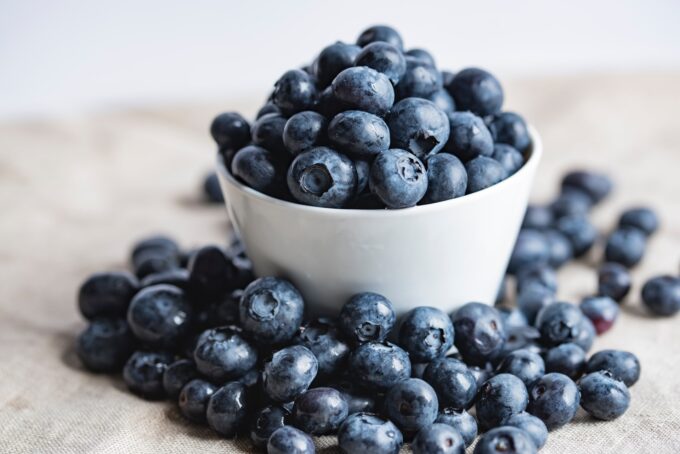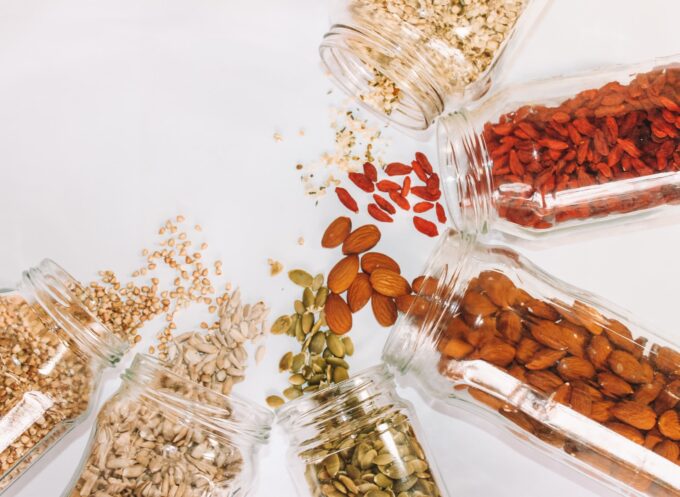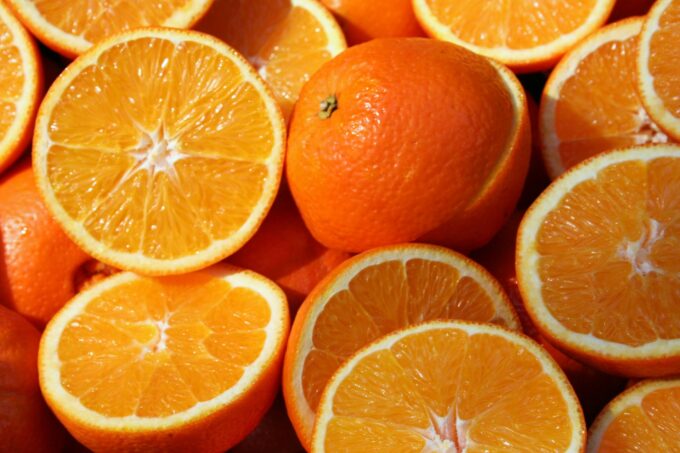How many times have you had to work or study even if you are extremely exhausted? This could be tricky especially when your brain uses about 20 percent of your energy. It indeed is a huge energy budget, but your goal is to find a way to boost your energy levels and increase productivity right away.
How Does Your Brain Use Energy?
As with any other organ in your body, the brain requires additional energy for its functioning. Brain cells (neurons) work on the principle of using glucose for fueling cellular activities. The type of sugar they are using comes from the food we consume on a daily basis. Through the blood, it transfers to neurons and converts into a certain amount of energy. (“Sugar for the brain: the role of glucose in physiological and pathological brain function.” NCBI, 20 August 2013, Accessed 21 April 2024.)
Here is the list of top five foods that will help you concentrate:
1. Fish

Source: unsplash.com
Putting fish on the top of our list is entirely reasonable. It contains omega-3 fatty acids that are also known as “brain food.” Also, it’s an excellent source of protein, and some people say that eating two servings per week may be linked to better memory performance. Lowering risks of dementia and stroke is one of the health benefits of diets high in omega-3 fatty acids. Plus, it’s proven that people who consume fish regularly tend to have more grey matter that contains nerve cells responsible for decision making, emotions, and memory. (“How Omega-3 Fish Oil Affects Your Brain and Mental Health.” Healthline, 5 December 2017, Accessed 21 April 2024.)
2. Blueberries

Source: unsplash.com
Any type of colored berries, especially blueberries, have a high level of flavonoid compounds called anthocyanins that not only support memory and learning but increase blood flow. They have antioxidant and anti-inflammatory effects, which enable them to act against age-related conditions like dementia and Alzheimer’s. Consuming them for breakfast or as a snack might improve your memory and cognitive processes. (“Neuroprotective effects of berry fruits on neurodegenerative diseases.” NCBI, Accessed 21 April 2024.)
Some researchers say that they can be beneficial for your digestive system too, and help you focus for up to five hours more at the same time. There are numerous creative recipes that involve blueberries, or you can even create your own. Our advice is to start with basics like simple oatmeal early in the morning or a smoothie for dinner. You can try baking some muffins or making ice cream. Get creative and work on your brain health!
3. Nuts

Source: unsplash.com
Eating nuts is one of the best things you can do for your health. They are linked to heart wellness, and you know that having a healthy heart means having a healthy brain too. They consist of antioxidants, many healthy fats, and vitamin E. They contain copper, fatty acids, selenium, and zinc, everything you might possibly need for better functioning (“8 Foods High in Vitamin E and Why You Need It.” WebMD, 10 November 2020, https://www.webmd.com/diet/foods-high-in-vitamin-e. Accessed 21 April 2024.)
Walnuts are those with the highest zinc levels. It will provide protection from free-radical damage. Nuts are highly beneficial when combining walnuts and pecans unless you’re allergic. (“Top Nuts High in Zinc.” Souper Sage, Accessed 21 April 2024.)
If you don’t consume them regularly, this is an excellent moment to start. From smoothies to healthy snacks- they are suitable for combining with salads too. Still, you can try pistachios that are rich in nut oil which is the main factor in preventing inflammation.
4. Oranges

Source: unsplash.com
Crucial vitamin for our body is vitamin C. It boosts immunity and makes excellent protection from viruses. Every citrus contains a high level of flavonoids that protect brain cells from injury. (“Potency of Selected Berries, Grapes, and Citrus Fruit as Neuroprotective Agents.” Hindawi, 30 May 2020, https://www.hindawi.com/journals/ecam/2020/3582947/. Accessed 21 April 2024.) You can get almost all the vitamin C you need daily from just one small orange. Fresh lemonade or orange juice represents a direct source of glucose, which is fuel for your organs, including the brain. It increases cognitive functions, blood flow, and concentration. (“Sugar and the Brain | Harvard Medical School.” Harvard Medical School, Accessed 21 April 2024.)
5. Chocolate

Source: unsplash.com
Dark chocolate is famous for its antioxidant vitamin E that is directly linked to less cognitive decline as you age. (“7 Proven Health Benefits of Dark Chocolate.” Healthline, https://www.healthline.com/nutrition/7-health-benefits-dark-chocolate. Accessed 21 April 2024.) It has natural stimulants, such as caffeine, so it will surely increase your concentration. Flavonoids found in cocoa powder protect the brain and raise your memory. (“The neuroprotective effects of cocoa flavanol and its influence on cognitive performance.” NCBI, Accessed 21 April 2024.)After all, isn’t chocolate called a mood booster?
Scientists proved that only taste makes people feel happier. Believe it or not, chocolate is directly connected to boosting blood flow that enables better concentration, memory, and learning functions. Luckily for you, it’s famous for lowering stress levels. Stress is definitely present in our routines more than it should be, and it mostly results in imbalanced health and certain damage to the brain. We’re not quite aware of that fact, but magnesium found in chocolate can prevent that. After all, that substance is usually lacking in our bodies. This doesn’t mean you can replace your meals with chocolate. It’s all about balance.
How to Stay Focused?
Coffee sounds great sometimes, but it’s not the healthiest solution. Replacing it with green tea can help you in the weight loss journey, say people from betterweighmedical.com. The main part is sleeping. Having at least eight hours of sleep will be beneficial for you to concentrate. Making breaks and meditation will improve attention span. Don’t forget to stay hydrated all the time.







